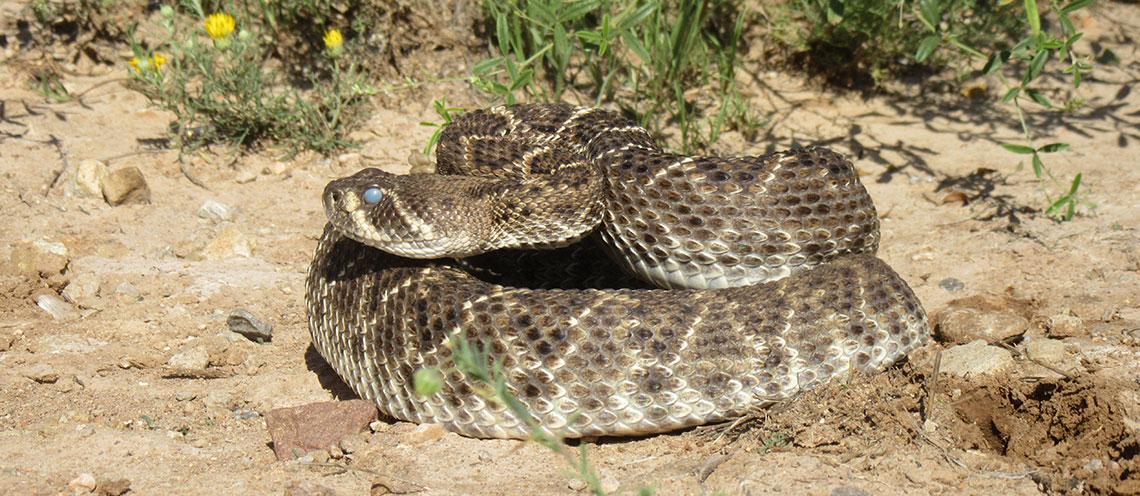
Snake Bites in Pets
Monday, April 3, 2017
What should someone do if their pet gets bitten by a snake? Immediately take your pet to your veterinarian.
First aid on the way to the vet’s office may include:
- Carry your pet rather than allowing it to walk
- Try to keep your pet quiet and warm during transport
- Do not apply a tourniquet as this can cause additional harm to your pet.
If you can safely take a picture of the snake, without putting yourself in harm’s way, this may be useful in identifying the type of snake, its size, etc. Do not try to catch or kill the snake.
Bites from non-venomous snakes may cause swelling and bruising around the bite. Bites may become painful and infected. Veterinary attention focuses on reducing the swelling, pain and chance of infection.
Bites from venomous snakes may cause a variety of symptoms depending on the species of the snake.
Generally there is extensive swelling that spreads rapidly. The bite wound may bleed or produce a bloody discharge. The bite wounds from the fangs may not be visible due to the swelling or the small mouth size of young or small snakes.
Shortly after being bitten, pets may demonstrate severe weakness, cool feet, pale mucous membranes, and hyperventilation. The gums may turn pale or blue. It is not uncommon for snake venom to also cause vomiting shortly after the initial bite occurs.
The toxins produced by venomous snakes may cause extensive tissue or red blood cell damage, clotting problems or damage to the heart and kidney. These bites can also produce toxins that affect the neurologic system.
Many factors affect the severity of damage caused by the snake bite including:
- Size and species of the snake
- Amount of venom injected
- Location and depth of the bite – bites to the leg and paws tend to be less severe than bites to the head and body
- Age, size and general health of the pet can impact response to a bite
- The amount of time that elapses prior to treatment by your veterinarian.
What happens if a cat or dog eats a venomous snake? Ingested venom is not known to be toxic. The proteins should break down during digestion. However, there is danger of venom entering a cut or laceration in the mouth, especially with sharp teeth and bones present.
Presumed dead snakes may also still have a defensive bite and could be a danger. It is best to avoid letting your pets consume snakes.
Venomous snake bites are medical emergencies that require immediate attention. Your veterinarian will choose a course of treatment based on the type of snake bite and the severity of the symptoms.
by Elisabeth J. Giedt, DVM
Veterinary Viewpoints is provided by the faculty of the OSU Veterinary Medical Hospital. Certified by the American Animal Hospital Association, the hospital is open to the public providing routine and specialized care for all species and 24-hour emergency care, 365 days a year.
